With its economy collapsing, Cuba is in the middle of its largest exodus in sixty-five years. In 2022, U.S. border authorities intercepted 313,499 Cubans by land and sea. That’s more than the combined number of Cubans who emigrated during the revolution in the 1950s, the Mariel exodus in the 1980s, and the rafter crisis in the 1990s. Despite expanding humanitarian parole in 2023, the United States still cannot accommodate the high demand, and Cubans continue to look for new ways to leave their country and for other places to go.
While some Cubans succeed in beginning new lives elsewhere, others are forced to return—a process that is often psychologically, physically, and financially traumatic. The vast majority of Cubans sell their houses, cars, furniture, and appliances to raise enough money to emigrate. In the most extreme cases, returnees without money or prospects have committed suicide. “In this country,” explains one would-be migrant, “there is no future for young people. Really, there is no future for anyone.” In the absence of material opportunities, people in many Cuban communities rely on networks of family and friends to support one another. And many who failed to escape the country the first time they tried are still hoping to try again.
Alexis and his family sold everything they owned to buy the materials for the boat they tried to take to the United States. They were intercepted mere miles from shore and deported. Back in the fishing village of Jaimanitas, outside Havana, they can’t work because of their status as deportees, and they can’t start a private business because they have no money left. Now, they live with the help of neighbors and relatives and without the ability to migrate again. Alexis’s son, Alexis Jr., experienced such acute despair upon being detained by the U.S. Coast Guard that he attempted suicide; his daughter, Alexia, suffers from chronic nightmares about the police and the sea.
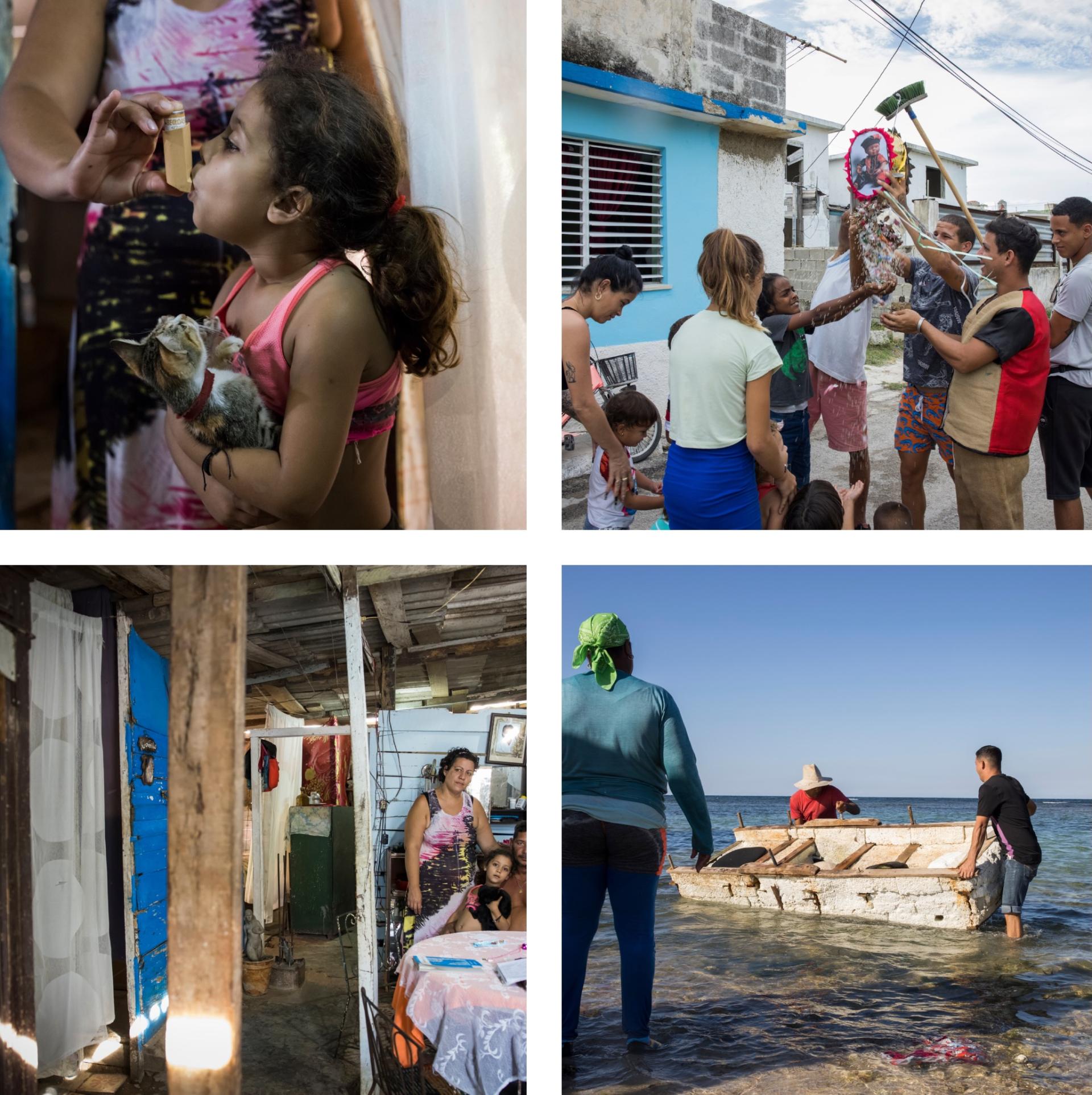
Top right: Alexis celebrates his saint’s birthday with a piñata of sweets for the neighborhood children.
Botton left: Alexis, his daughter Alexia, and his wife Juidleyvi
Bottom right: Alexis helps a fisherman with his raft on the same beach he and his family set out from when they tried to emigrate.
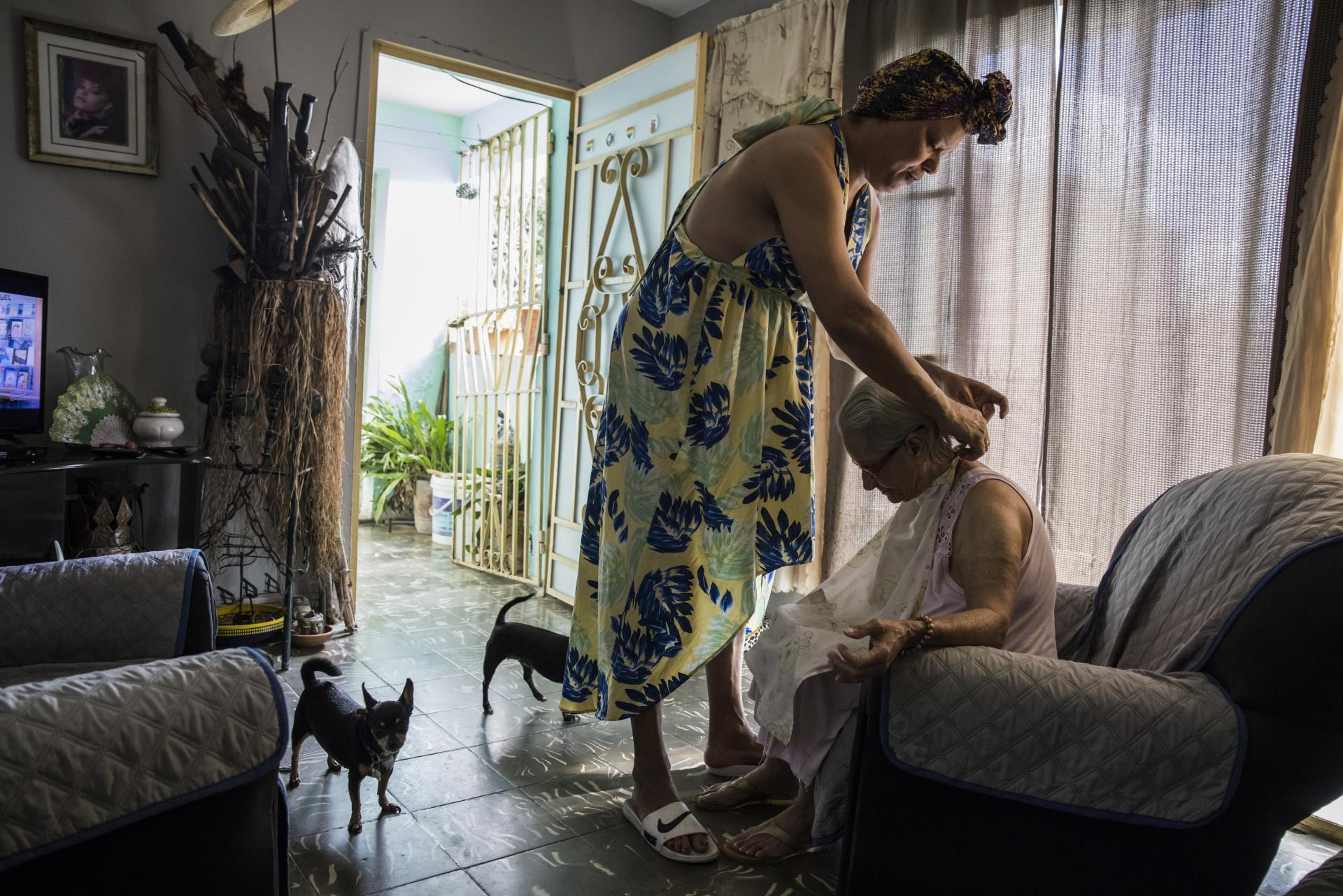
Kiriam had saved enough money to ensure she did not have to sell the small apartment where she lived with her mother when she left Cuba. She hoped to move to Spain and then bring her mother to Europe. After paying €3,000 for the journey and for legal papers she could use in Spain, she entered Europe via Russia, which doesn’t require visas for Cuban citizens. But instead of traveling through Europe to Barcelona, she was detained for two months in a Russian prison and then deported. She remembers the time she spent isolated in a subfreezing cell: “I thought I was going crazy when, after a month, I started talking to myself out loud and answering my questions as if I were someone else.” Thinking of the process makes her cry. “I was in Russia in a cell ten meters square, and now I’m in a cell the size of an island.”
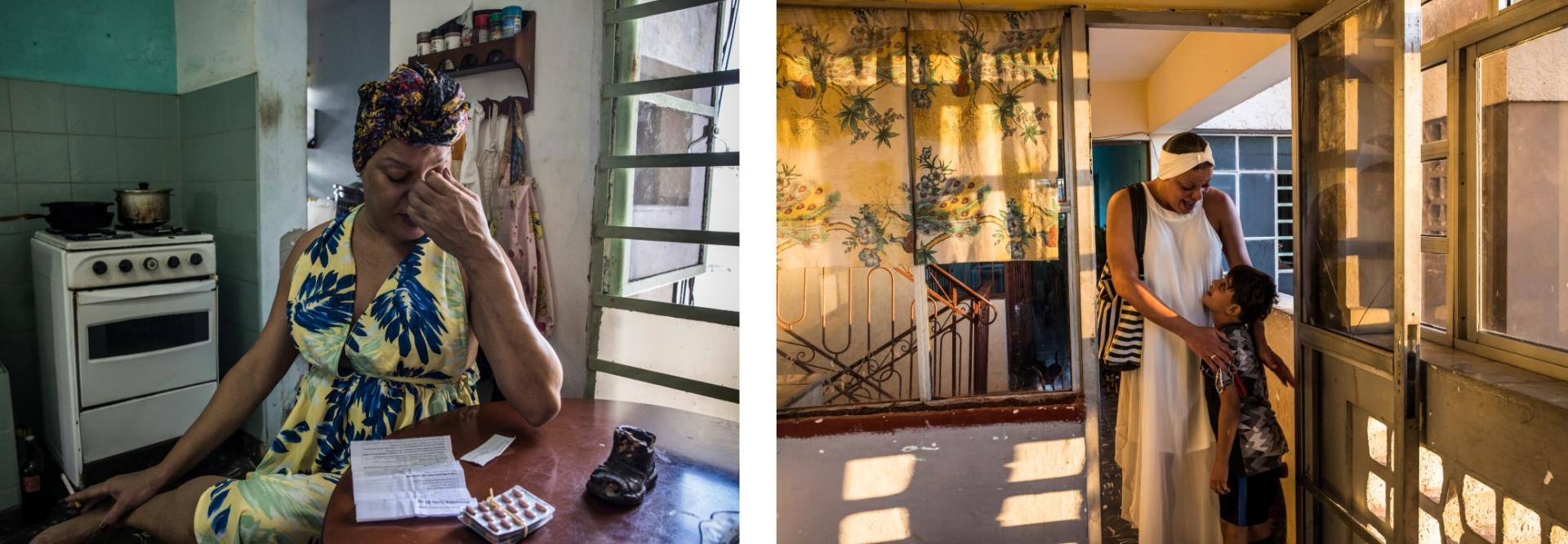
Right: Kiriam hugs the son of a neighbor who helps her care for her mother.
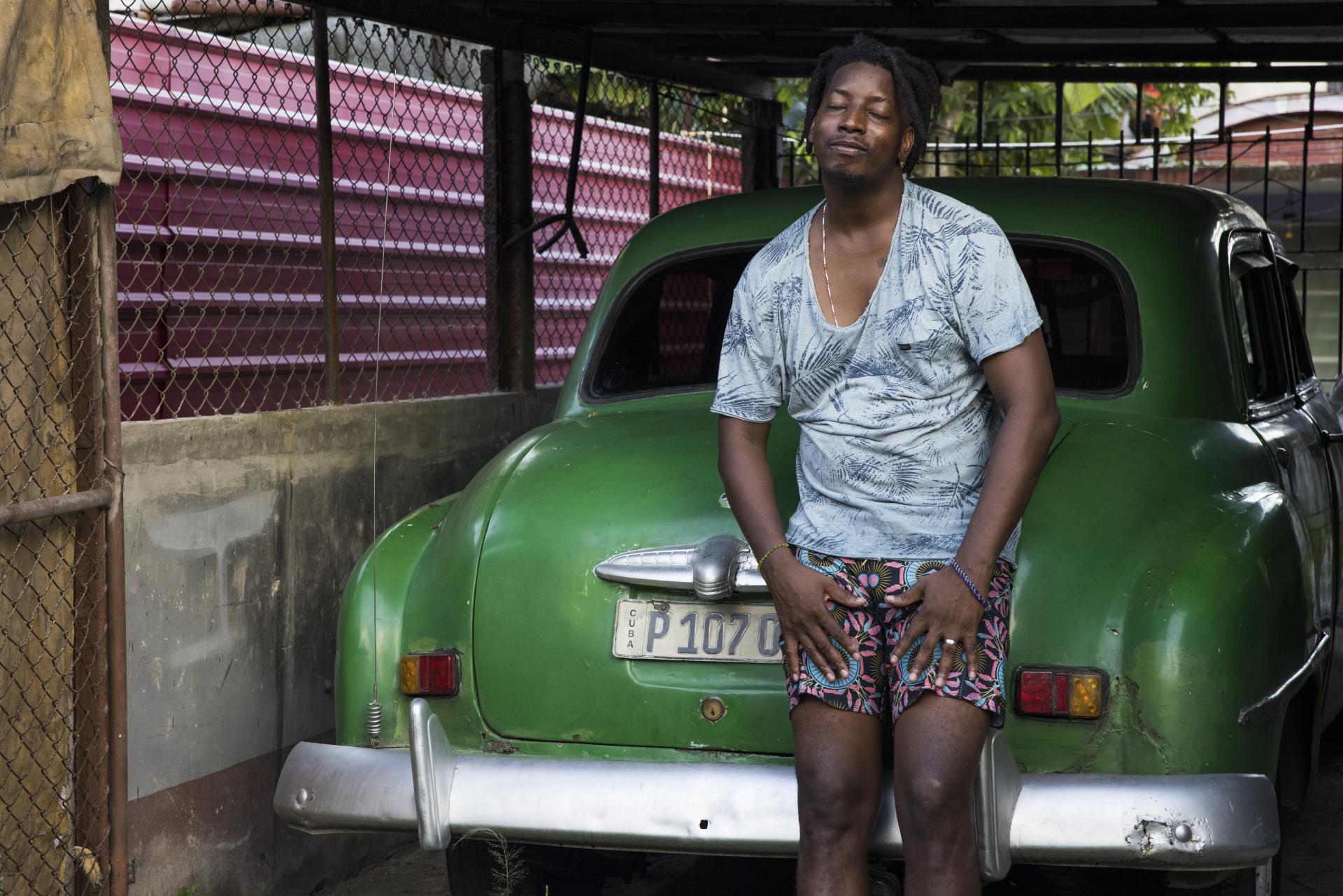
Many Cubans emigrate in hopes of providing financial support for family members who stay in Cuba. When Dayron went to Russia, he wanted to help his mother, who lived in a small, rural town without reliable electricity or water. He didn’t anticipate the precarity he found in Russia, where he earned barely enough money to support himself and worked in terrible conditions. Because it is almost impossible for Cubans to legalize their status as permanent residents in Russia, they are exposed to abuses and exploitation of all kinds. When Dayron spoke to his mother, he told her that everything was going well, but eventually he could no longer lie to her. After suffering through a year of loneliness and economic insecurity, a physical assault, and an extended illness, he decided to return to Cuba. The shame of failing in his migration process weighs heavily on Dayron. Now, he is trying to overcome the feeling of failure and earn some money as a cab driver with an old car from the 1950s.
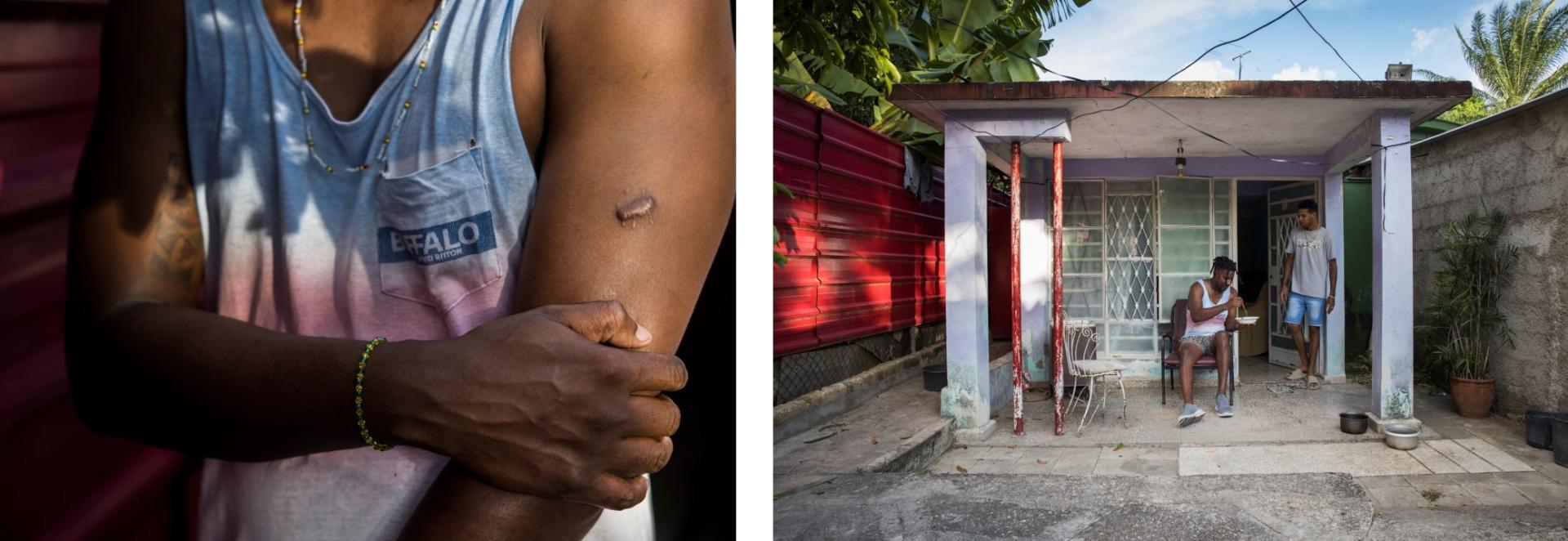
Right: Dayron is friends with his landlord’s son. After Dayron spent the whole day looking for car parts and didn’t get a chance to eat, his friend brought him a plate of avocado. Dayron and his mother rent a room in the house.

